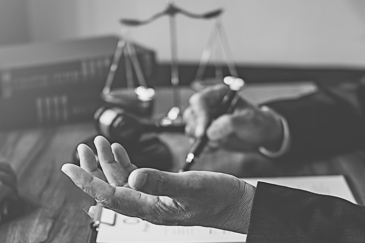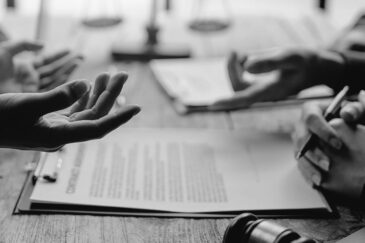Celia Bigoness is a Clinical Professor of Law and founder of the Entrepreneurship Law Clinic, Cornell’s first transactional law clinic. In addition to teaching at the Entrepreneurship Law Clinic, Professor Bigoness teaches “Introduction to Transactional Lawyering” and organizes the annual Cornell Law School Transactional Lawyering Competition. Before joining Cornell, she spent seven years practicing corporate law at Sullivan & Cromwell LLP in New York, London, and Paris. Her experience includes project finance, leveraged finance, capital markets, and mergers and acquisitions. Professor Bigoness received her J.D. from Yale Law School, where she was editor-in-chief of the Yale Journal of International Law, and her A.B. from Harvard.
Request More Info
Overview and Courses
When it comes to corporate governance, it is crucial to have a thorough and applicable understanding of the roles, rights, and interactions at play.
This certificate program provides an overview of the different types of business organizations, including limited liability companies, partnerships, and corporations, covering key elements of corporate governance law in order to enable you to understand, anticipate, and respond to the concerns of various stakeholders within your organization. You will analyze the roles and duties of corporate directors, management, and shareholders, then apply the laws surrounding fiduciary duties and the business judgment rule to various simulated corporate transactions or decisions. You will then determine how to avoid and reduce the risk of criminal liability arising within an organizational setting and apply this practical knowledge to business decisions. You’ll establish ways to minimize potential disruptions, honing the ability to navigate internal and external investigations into possible wrongdoing to a successful and efficient close. Ultimately, by building a plan to respond to anticipated questions and concerns from all types of stakeholders, you will be prepared to put your newfound knowledge into practice in your organization and beyond.
The courses in this certificate program are required to be completed in the order that they appear.
Course list
If you own a business, have ever thought about starting a business, or have the opportunity to buy into a business in the future, you'll want to understand the personal implications the business structure may have for you.
In this course, you will look at how different types of business entities are structured in the U.S.? and examine the pros and cons of business structures for different individuals in different circumstances. You will also do a deep dive into corporations, which are the most common business entities, especially for large and complex businesses. You'll define the limits of the corporate structure by exploring the economic and social purposes of corporations along with what happens if individuals who own or control a corporation abuse their position of power.
Whatever your circumstances are, through this study you will be given the tools to understand who the relevant actors are in any business structure, what their rights and responsibilities are, and how you fit in.
- Nov 5, 2025
- Jan 28, 2026
- Apr 22, 2026
- Jul 15, 2026
- Oct 7, 2026
- Dec 30, 2026
Whether you have the opportunity to serve on a corporate board, you're tasked with preparing a presentation to a board and its shareholders, or you own equity and want to understand your rights, it's important for you to recognize how to work within the constraints of corporate laws. In this course, you will look at the framework for decision making within a corporation — specifically fiduciary duties, which are the duties that corporate directors and officers owe to the shareholders.
You'll also become more familiar with current challenges to the traditional notion that the directors and officers are the agents of the shareholders and only the shareholders, a way of thinking that has resulted in the belief that directors and officers have no duty other than to maximize shareholder profits. In recent years, however, there has been backlash to this concept, leading to widespread recognition that individuals in charge of corporate decision making have some obligation to take into account ethics, the community, and the environmental impact of their actions. You'll examine the implications of this shift and determine how the rules affect you.
- Nov 19, 2025
- Feb 11, 2026
- May 6, 2026
- Jul 29, 2026
- Oct 21, 2026
- Dec 3, 2025
- Feb 25, 2026
- May 20, 2026
- Aug 12, 2026
- Nov 4, 2026
In the event that you or others in your organization suspect a crime has been committed, there are a number of steps that can be taken to protect the company as well as procedures that can be adopted to avoid similar issues in the future. You will begin this course by recognizing the function, course, and consequences of an internal investigation. You will review the steps that take place in an internal investigation and prepare what you should do in case you're asked to be investigated. You will then explore what happens when the Department of Justice becomes involved in your investigation through a grand jury. You will choose the best course of action when you first encounter the Department of Justice and gain a clear sense of what a grand jury investigation entails. Finally, you will apply the lessons from this course to evaluate criminal liability in an insider trading case. You will explore the sources of insider trading law and analyze an insider trading case to decide whether criminal actions have taken place.
You are required to have completed the following courses or have equivalent experience before taking this course:
- Criminal Liability in an Organizational Setting
- Dec 17, 2025
- Mar 11, 2026
- Jun 3, 2026
- Aug 26, 2026
- Nov 18, 2026
Request more Info by completing the form below.
How It Works
- View slide #1
- View slide #2
- View slide #3
- View slide #4
- View slide #5
- View slide #6
- View slide #7
- View slide #8
- View slide #9
Faculty Authors
Stephen Garvey has written and taught in the areas of capital punishment, criminal law, and the philosophy of criminal law. Following his graduation from Yale Law School, Professor Garvey clerked for the Hon. Wilfred Feinberg of the U.S. Court of Appeals for the Second Circuit, then practiced in the Washington, D.C., firm of Covington & Burling. He joined the Cornell Law School faculty in 1994. Professor Garvey’s current scholarship focuses on substantive criminal law.
Key Course Takeaways
- Analyze why different business entities have different stakeholders, along with the pros and cons of choosing one entity over another
- Assess which stakeholders are involved in major business decisions and have legal responsibility over decisions made by the company
- Anticipate what types of information an organization’s stakeholders require before making a particular business decision
- Evaluate how corporate social responsibility affects corporate decision making and directors’ fiduciary duties
- Avoid and reduce the risk of criminal liability arising within an organizational setting for both individuals within the organization and the organization as an entity
- Facilitate internal investigations conducted by inside or outside counsel, minimizing potential disruption to the organization
- Assess which scenarios allow deference to officer business judgment and which will indicate shareholder or board voting

Download a Brochure
Not ready to enroll but want to learn more? Download the certificate brochure to review program details.
What You'll Earn
- Corporate Governance Certificate from Cornell Law School
- 40 Professional Development Hours (4.0 CEUs)
Watch the Video
Who Should Enroll
- Executives
- Board members
- Founders and entrepreneurs
- Accountants
- Auditors
- Investment bankers
- Professionals working with boards of directors
- Professionals working in highly regulated industries
- Professionals working with lawyers
Explore Related Programs

“Cornell Law’s program helped me do a better job in my current position AND helped me advance in my career. The courses do a great job of walking you through high-level and mid-level legal concepts — which has been beneficial for both my professional and my personal life.”
Request Information Now by completing the form below.

Corporate Governance
| Select Payment Method | Cost |
|---|---|
| $3,699 | |






















